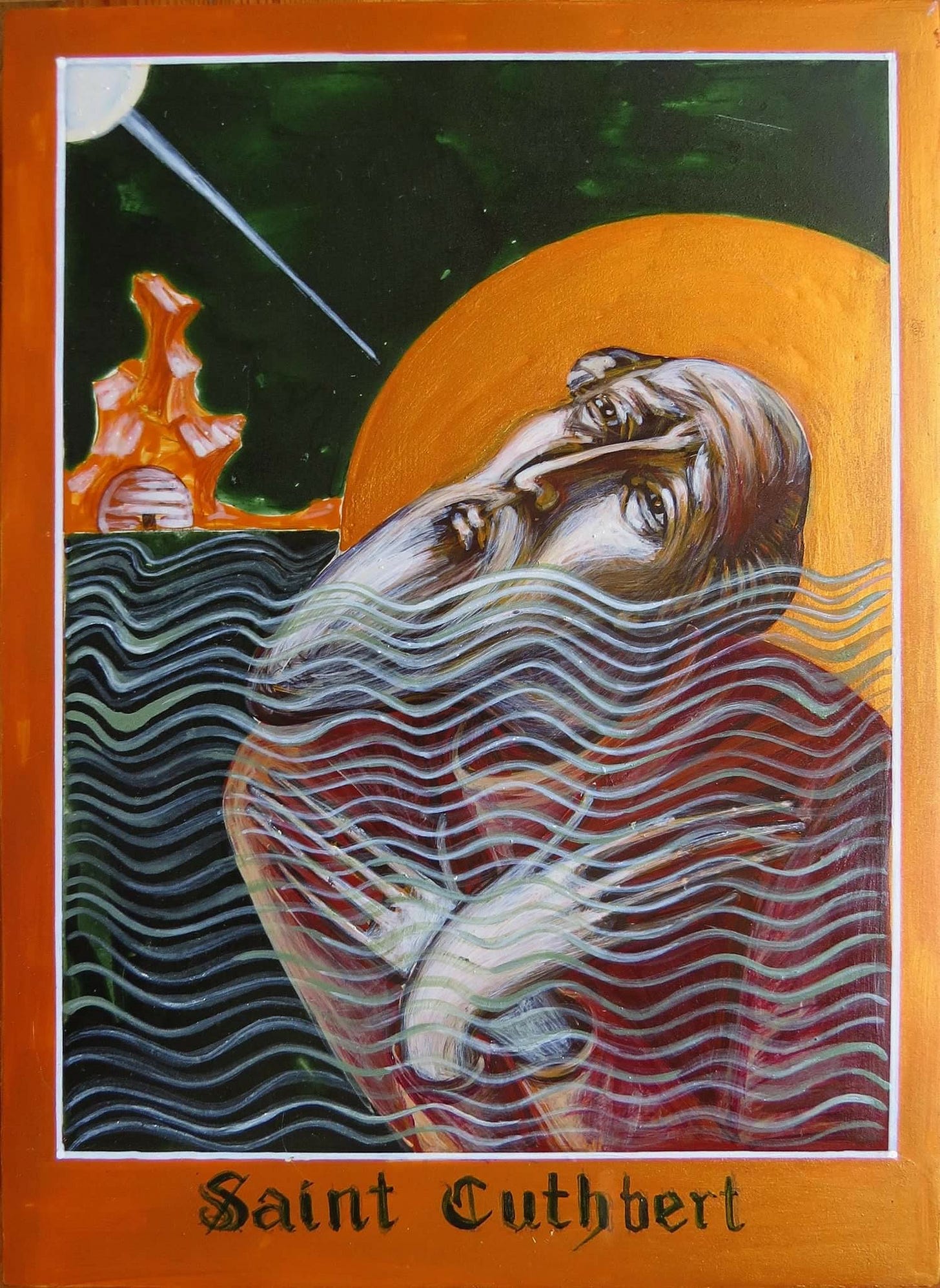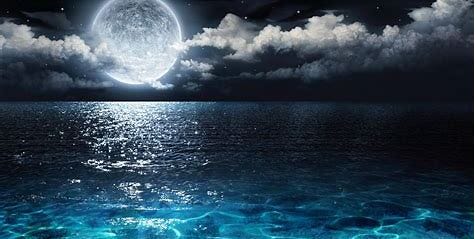Bleeding Out
It was night.
I was in the forest and the cicadas were chirping wildly as I watched a mother step out of her car with a baby in her arms. Her body, lean and slender beneath the florescent lights of the gas station canopy above her, was a stark contrast to the world around her feet. Dingy. Dirty. The ground covered in other people’s trash…
She almost looked like an angel.
Almost.
“Okay, that sounds good,” she said into the phone tucked between her shoulder and her ear as she fumbled with her keys and shifted the baby from one hip to the other. Struggling awkwardly, she eventually managed to shut the door and pull a wallet from the back pocket of her pants.
“Yeah. Yep. On the way. Should be there in about an hour.”
She was bouncing the baby now. It was late and the girl was tired and fussy and the smell of gasoline and the whirring of the pump were upsetting her all the more. As she continued to talk on the phone the woman kept her eyes on the price counter ticking upwards, apparently intending to stop before the tank got full. That made sense, I thought. She looked to be the sort of woman short on cash. Blue jeans. A flannel shirt that was probably her husband’s. Two-fifteen in the morning in a pair of tired white sneakers. Brown hair falling in curls around her shoulders and the baby on her hip had a mop of blonde. “Ssshhh… It’s okay,” she kept saying to the child. “Ssshhh… It’s okay.” Slowly the little girl began to quiet. Her mother even drew a few giggles from her with exaggerated silly faces, the kind where your mouth makes a sort of “pop” sound as you open it wide in surprise. The moon was overhead. Bright and full and silver beyond the roof of the Shell and no one else was around and they never saw me.
“Alright. We love you. Yeah. See you soon.”
And then I shot them both.
***CRACK***
A retort of fire belched out from the barrel of the gun and mother and baby fell in a scene of gore much too graphic to describe. And there was silence. That deep, eerie silence that only occurs right after someone has died. The pump kept going and so did the cicadas, but somehow both of those sounds only made the silence deeper by interrupting it. I sat motionless in the brush, looking on in a fascinated horror as the fruits of my actions laid in a heap on the concrete until the handle clicked and the pump shut off.
How do I describe it?
How can I possibly describe it?
I had been here before. In the darkness. In the heart of despair and despondency where Hope goes to die. Guilt fell on me like a stone and its weight threatened to crush me there beneath the branches of the trees.
What had I done?
Why had I done it?
More importantly, what, if anything, could ever be done to set it right?
Nothing.
That was the truth. Their lives were over and so was mine. Three deaths. One bullet. My legs wouldn’t work. Breath would not come to me. I writhed and contorted on the ground as though somehow that would help, screaming in agony at the pain of the sight of myself.
Have you ever known that? Have you ever, for even a moment, completely, utterly, hated yourself? To want nothing more than to never have existed but at the same time scared to die because you know only an eternity of Hell lay beyond?
I was already there. Hell is real, and you can go to it before you die.
Far away in the blackness of the highway I could see the lights. Slowly I could hear the sirens. One. Two. Many. Police car after police car speeding towards the scene of the crime to take me away and have me rightly and justly killed.
Nothing left to do.
With a strange gentleness I turned the gun upon myself in the darkness and set the barrel between my eyes. Not an easy position. Awkwardly straining and contorting my neck and shoulders to reach the trigger, I settled finally on pointing the gun beneath my chin, my eyes looking up to heaven, to the stars and that brilliant, silver moon. I fondled the mechanism, feeling the ease with which it would give and end the nightmare that my life had become…
…and then suddenly I was wrapped in brilliant white light.
“Be okay.”
A voice came to me from out of the world suddenly turned gold. The gloom and dark of the forest faded, replaced like a blanket of snow by a great peace and before me there was a face. The beautiful, angelic face of the woman I had just killed, her head illuminated as if by the setting sun.
“This has to be okay.” She told me. “You. You have to learn to be okay.”
Then I woke up.
Drowning in the Sea
“An ascent into heaven, where pagan dances are being celebrated; and a descent into hell, where angels are doing good deeds.” — Dream of an eight-year-old girl with a terminal illness, as related by Carl Jung.
In the seventh century in what is now Scotland but at the time was known as Northumbria, there lived a man named Cuthbert. Cuthbert of Lindisfarne. He was a bishop, a hermit, and a monk, back in the time before clerical careerism when one person could indeed be all of those things. Starting out, a young Cuthbert had taken religious orders and lived in a monastery with other monks, but he quickly found this life a bit too fancy for his liking. Seeking greater austerity, Cuthbert eventually got permission from his abbot to move some distance away from the other brothers into a cave.
That was fine.
Religious people have always been a little eccentric, and the faithful of Anglo-Saxon Britain were no exception. Still though, the brothers at the monastery worried about him, off all on his own, and so occasionally they would make the hike over to his cave to ensure that Cuthbert was doing okay.
In the day, all was well. They would go to visit their separated brother and find him sitting politely in his cave, praying or perhaps preparing a simple meal, and he would welcome them in to sit and talk by his small fire.
But if they went at night though…
Cuthbert was never there.
At first this caused the monks great concern. Perhaps their brother had been assailed by criminals, or eaten by animals, or taken as a slave by Irish raiders! But… every time, without fail, the next morning they would find Cuthbert back in his cave again. Safe and sound.
Fears of danger now dissipated, the monks turned instead to fears of scandal. Was he out visiting prostitutes? Gambling? Had this brother of theirs some dastardly night-time habit that would bring shame upon their community? “He’s a drunkard,” some speculated. “He practices dark magic,” said others. “At night, Cuthbert goes to commune with the Devil,” stated some of the more extreme and slanderous of the gossipers.
“Where are you going each night!?” they would ask him over and over again, but Cuthbert refused to ever give any specifics.
“I go out pray,” he would answer.
“But why do you not pray in your cave then, as in the daylight hours?”
At this Cuthbert would shrug. “Too cramped.”
Consumed by curiosity and the fear that he might bring a bad reputation upon their community, the abbot eventually charged a young monk to hide outside of Cuthbert’s cave in the evening, and to follow the hermit discreetly to see exactly what he was up to. The young man did so. Setting himself in the brambles outside the cave as the sun went down, quietly watching the mouth for the hermit’s exit.
It took a while.
The young man almost fell asleep and missed it but a few hours before midnight he heard noises and roused himself and watched as Cuthbert emerged from the cave holding a lantern and other than sandals completely nude. The long hair and beard of the hermit fell around the shoulders of a body made skeletal from fasting and the light of the lantern illuminated ghostly pale flesh that almost never saw the sun.
Cuthbert began to walk. The monk followed.
It was some miles but eventually the hermit came to the seashore where the waves rolled upon the rocky beaches in gentle rhythms beneath the moon. The stars were out. The sky, cloudless. Above their heads a million tiny flecks of light twinkled as they had since the dawn of time, unhindered and in their full glory as few have known them since Edison and his bulbs blotted out the sky. The waters before them stretched away into eternal blackness, the abyss below meeting the abyss above at the horizon, the bright disk over their heads casting the whole world in a silver glow.
As the monk watched, the hermit set down his lantern and removed his sandals and without a moment’s hesitation waded out into the ice-cold sea. Mesmerized, the monk gazed wide-eyed at the hermit as he continued to plod forward into the water, step after frigid step, until only the top of his head was visible… a dark speck amongst the waves. There Cuthbert sat for hours and, occasionally, over the sounds of the ocean, the monk caught bits of hymns sung in Old English, every word gurgled through salt water.
Nu scylun hergan hefaenricaes uard, metudæs maecti end his modgidanc,
uerc uuldurfadur swe he uundra gihwaes, eci dryctin or astelidæ.
He aerist scop aelda barnum heben til hrofe haleg scepen.
Tha middungeard moncynnæs uard, eci dryctin æfter tiadæ
firum foldu frea allmectig.
— Hymn of Cædmon, a contemporary hymnist of Cuthbert whom he likely would have known. Cædmon is the earliest English poet of whom we have record.
Now we must honor the guardian of heaven, the might of the architect,
and his purpose, the work of the father of glory — as he is the beginning of
wonders established, The Eternal Lord.
He first created for the children of men, heaven as a roof, the holy creator.
Then the middle earth, the guardian of mankind, the eternal lord,
afterwards appointed, the lands for men, the Lord almighty.
— Modern English Translation
“Too cramped” indeed.
Eternity
I’m too chicken to do what Cuthbert did.
Personally, I get a little nervous swimming in the ocean in the broad daylight… getting out there at night sounds rather terrifying. In my defense, the beaches near me are a bit more shark and jellyfish infested than British waters typically are, but, even so, being out in the ocean at night, alone? Pretty ballsy. I swam in the open ocean once off a boat in the middle of the night and it was perfectly harrowing. Turn and face away from the ship and you see absolutely nothing but darkness. Black beneath you. Black before you. Black above you. Alone. Floating helpless in the face of Everything That Is… a Cosmos stretching on forever, you but a speck in the vastness of Forever.
What I do like though is to go and sit on the beach at nighttime. Two, three o’clock in the morning? You’ll seldom be more alone. Cold winter night with the wind biting through your clothes, sitting on a towel on the sand just close enough to the water so that it occasionally licks your toes…
The Expanse of Heaven opens for you.
The smallness of your own body against Eternity is thrown in sharp relief against the hugeness of your ego and suddenly every dearly held conception of yourself falls down. And… and if you lie back and stare up… up and away into the stars… well… after a while it can feel like there’s nothing between you and the farthest galaxy, as indeed there isn’t. Suddenly the prospect that you might somehow fall upwards and get lost in the infinite black seems very, very real.
God exists, see?
It’s just that you can’t find him in your cubicle.
It’s just that he’s not hanging around inside your Netflix account.
You have to go out there. To find him… you have to dive into Life.
You know, I’ve long been convinced that modern life, civilization itself really… is a shield. A purposeful constricting of space. We live in small boxes, drive in small boxes, work in small boxes. At every juncture we have endeavored to create an environment which is artificial, a space in which we ourselves are the largest and most powerful things. To limit our scope of vision so we never see the horizon and to fix our gaze always on things which are beneath us, screens or books or papers or food. To look Up is a rarity, and even at night when Up is otherwise inescapable, we have filled our cities with electric lights to cast a dome of pollution over us so we no longer have to see the stars.
Keep reading with a 7-day free trial
Subscribe to Holy is He Who Wrestles to keep reading this post and get 7 days of free access to the full post archives.








